.
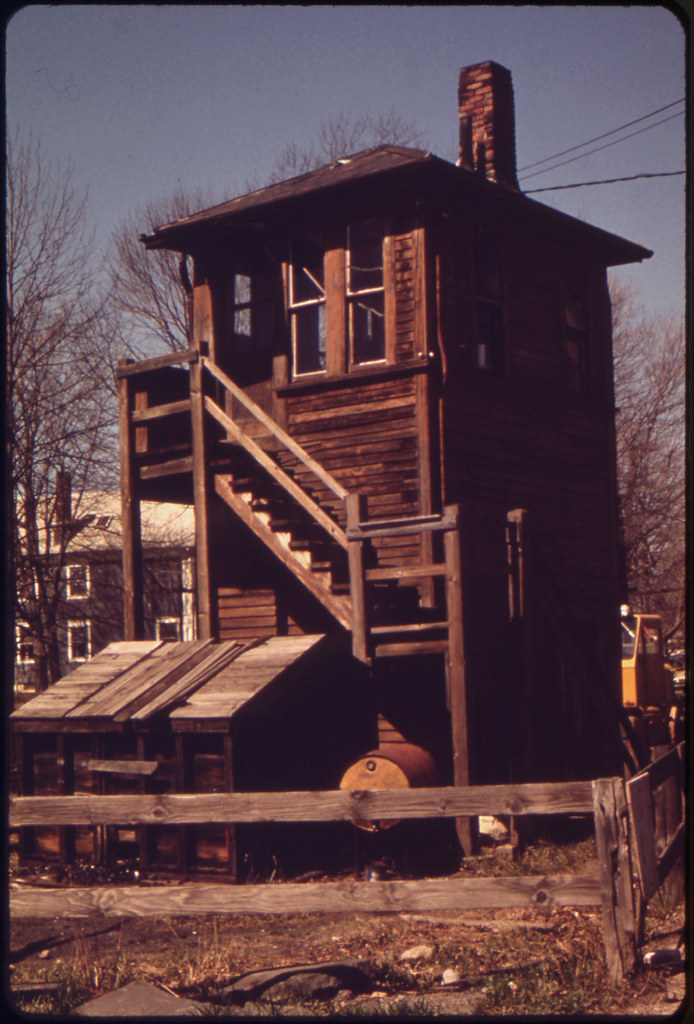
Switch House at the Taunton railroad crossing: photo by Ernst Halberstadt, April 1973
The galloping collection of boards
are the house which I afforded
one evening to walk into
just as the night came down.
Dark inside, the candle
lit of its own free will, the attic
groaned then, the stairs
led me up into the air.
From outside, it must have seemed
a wonder that it was
the inside he as me saw
in the dark there.
Robert Creeley (1926-2005): Somewhere, from For Love, 1962
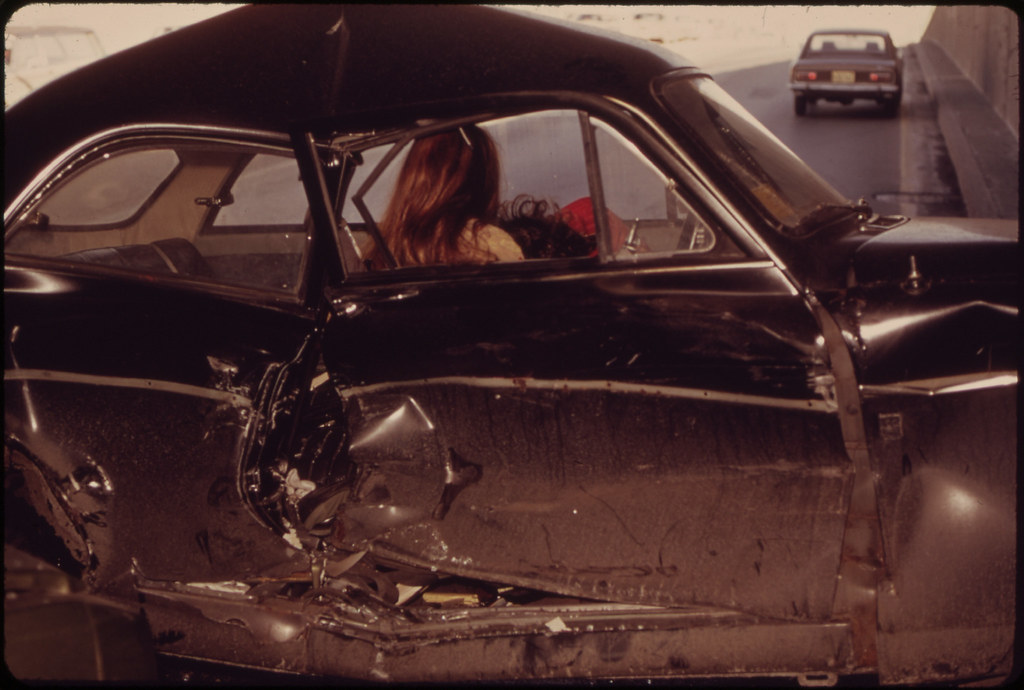
Aftermath of an auto accident on Storrow Drive, Boston, nine o'clock in the morning: photo by Ernst Halberstadt, February 1973
When
two, seated on the lap of a nurse on the on the front seat of a car
beside my father as he drove through the city of Boston on some errand
or other, I was showered with broken glass full in the face when a
stray lump of coal shattered the side window. Again I recall nothing of
it, and perversely the year that followed must have been a very happy
one because I was not allowed to cry for fear of causing the affected
eye further damage. For some time, then, the eye was left in place
although it seems to have had little function. It began to grow larger,
however, and so, when I was five, just a year after my father's death,
the eye was taken out. That I do remember because my mother told me we
were to go to the hospital on some routine business of her own, and once
there, she suggested I wait inside, which was common enough. But from
there I was taken to the doctor, and so on and so forth, till I came to
with a great bandage covering my head, and the eye gone. So I wish she
had told me, although I rationally understood why she did not, and why
she also had not made clear to me our father wasn't coming back after we
saw him taken away in the ambulance across our front yard in the snow.
We knew nothing of the funeral, or let me speak for myself. Those tracks
fading in the spring thaws mark for me the end of that previous time
entirely.
But it is luck, which was the point, and the paradoxical fact that that his death and my injury had a curious consequence. The company employing the person responsible for the careful shovelful of coal paid damages of some nine thousand dollars, enough to see me through college, toward which I'd been determinedly propelled by my mother's sense of duty to my father.
Robert Creeley: from Autobiography (1989), in Tom Clark: Robert Creeley and the American Common Place, 1993
But it is luck, which was the point, and the paradoxical fact that that his death and my injury had a curious consequence. The company employing the person responsible for the careful shovelful of coal paid damages of some nine thousand dollars, enough to see me through college, toward which I'd been determinedly propelled by my mother's sense of duty to my father.
Robert Creeley: from Autobiography (1989), in Tom Clark: Robert Creeley and the American Common Place, 1993
Creeley
was like the loyal philosopher brother one dreams of having. Creeley
spoke almost dreamlike about loss. I truly believe he would have been
the only one to help me see clearly. After all, he had suffered real
loss himself, and his sense of psychic loss clung to him like a halo.
Jim Dine: from I Know About Creeley (2012)
Jim Dine: from I Know About Creeley (2012)
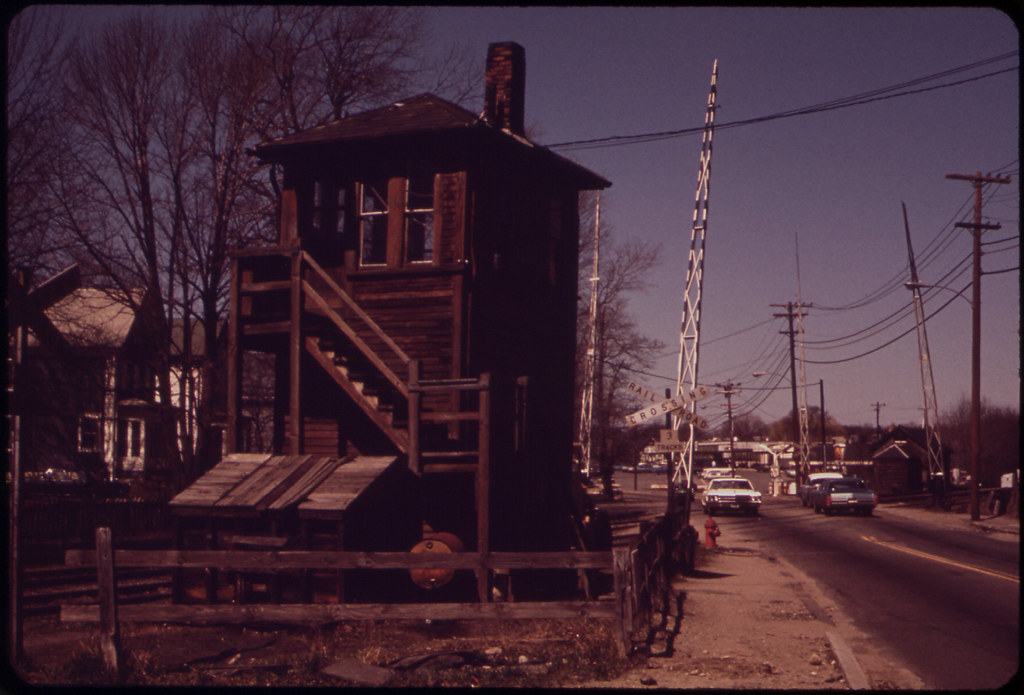
Switch House and Taunton railroad crossing: photo by Ernst Halberstadt, April 1973
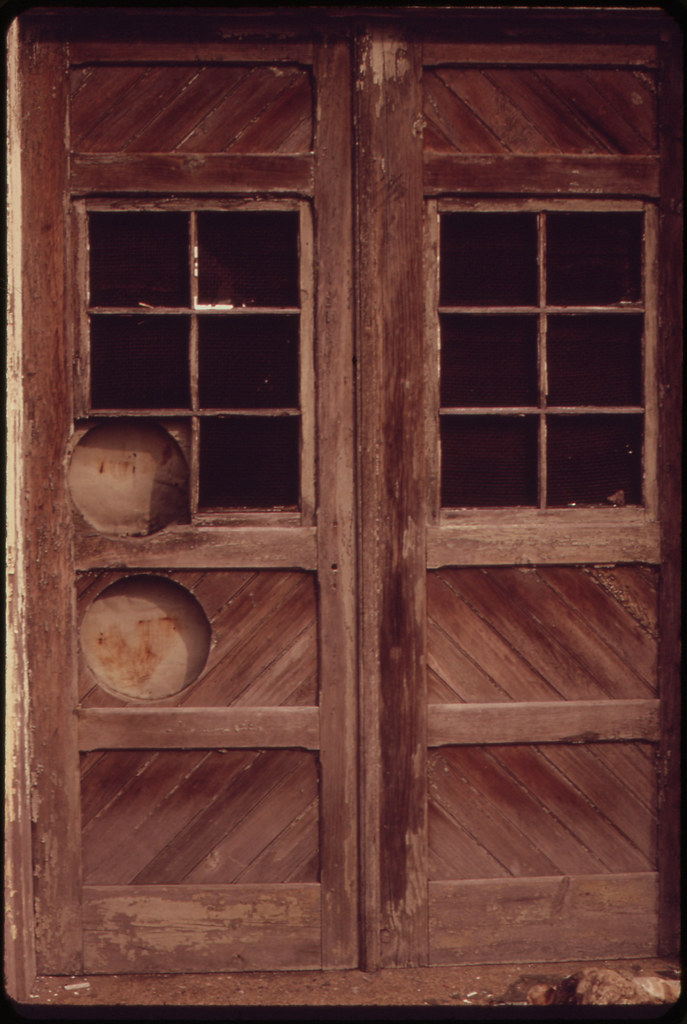
Rear of Lord and Jealous Wool Mill in City Mills, a manufacturing town on the Charles River: photo by Ernst Halberstadt, March 1973

Wool mill in City Mills, one of thirty-five manufacturing towns along the eighty-mile Charles River: photo by Ernst Halberstadt, June 1973
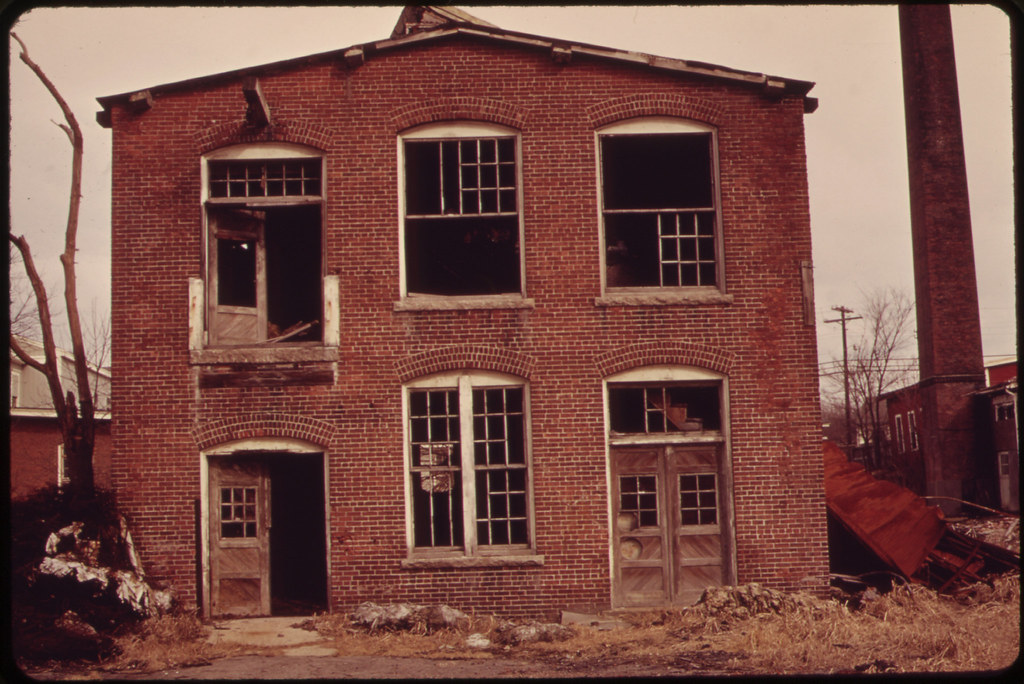
Abandoned building adjoins Lord and Jealous Wool Mill in City Mills, a manufacturing town on the Charles River: photo by Ernst Halberstadt, March 1973
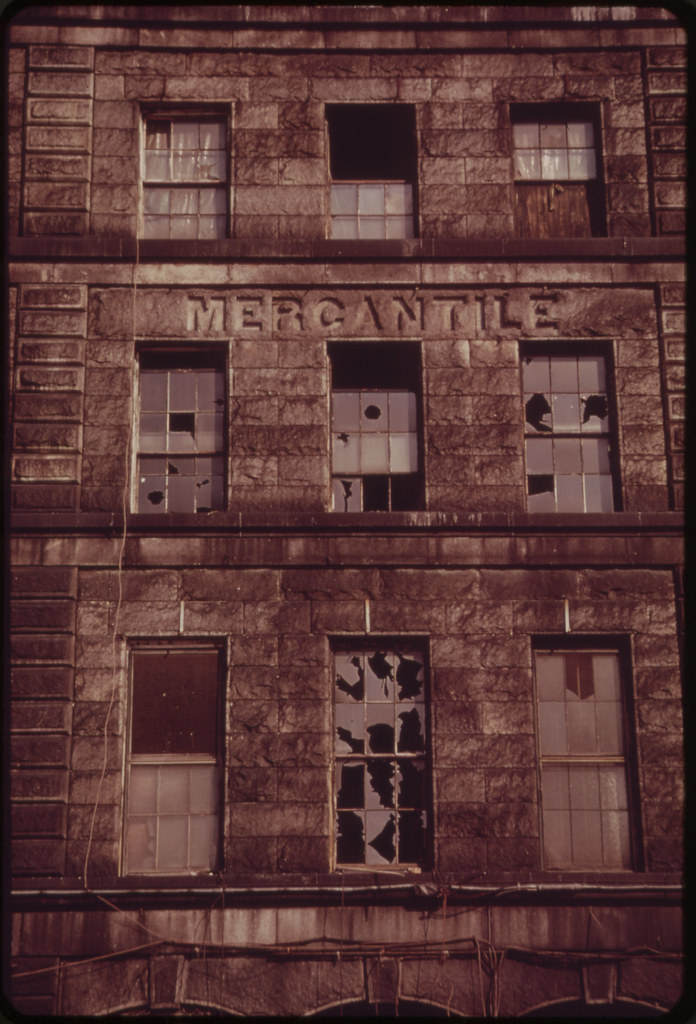
Mercantile Building -- corner of Richmond and Commercial Streets, Boston: photo by Ernst Halberstadt, May 1973
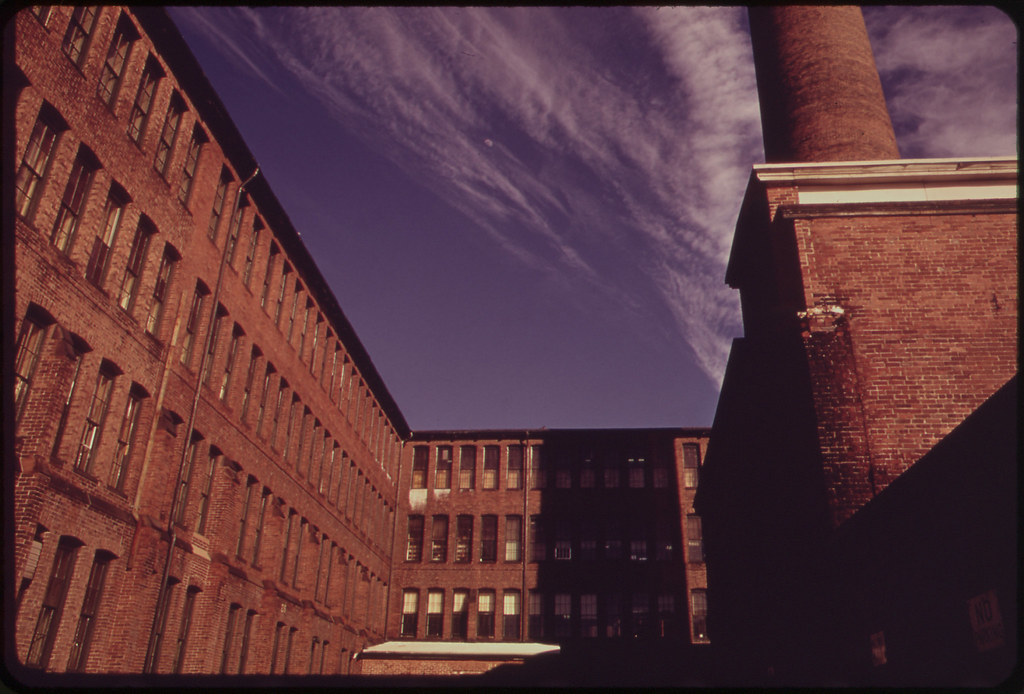
Waltham Watch Company. Waltham is a busy manufacturing city on the Charles River: photo by Ernst Halberstadt, March 1973
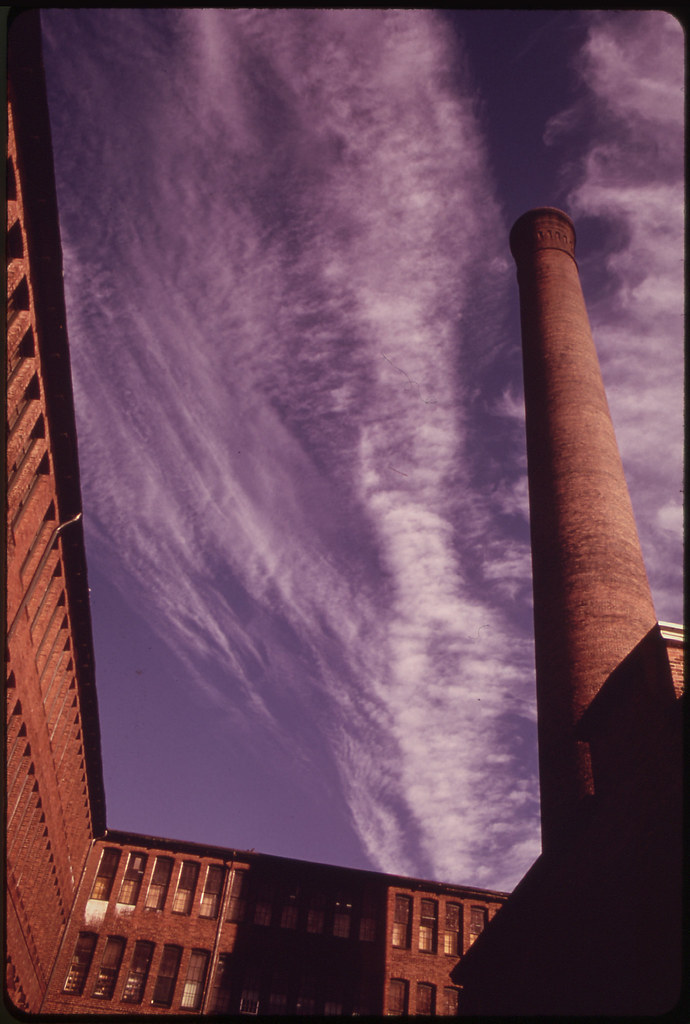
Waltham Watch Company. Waltham is one of 35 manufacturing cities and towns on the Charles River: photo by Ernst Halberstadt, March 1973
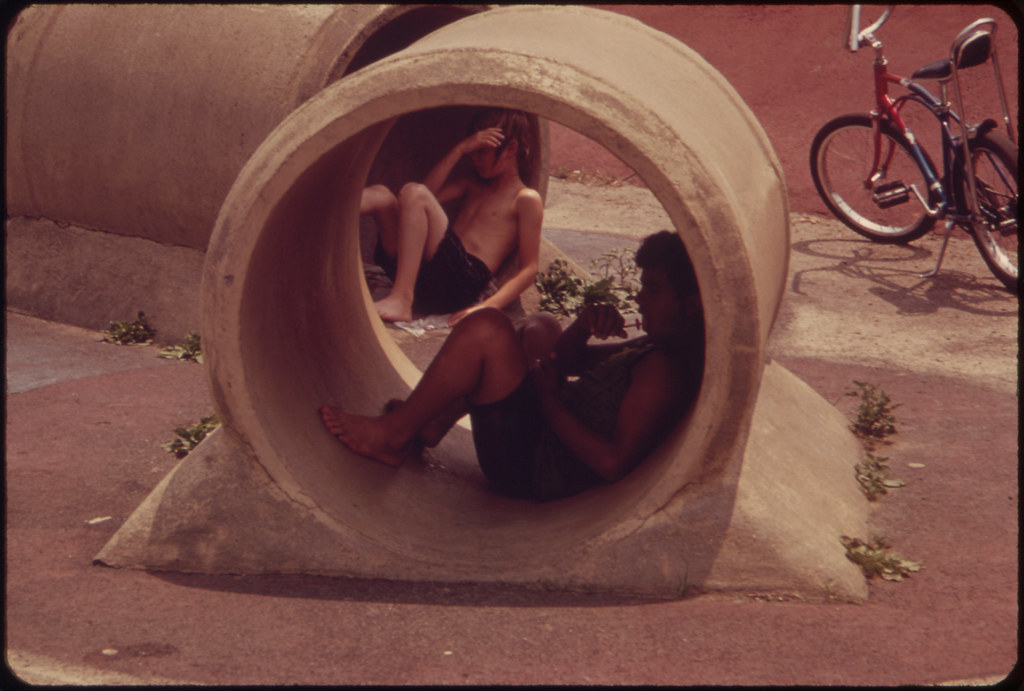
Public playground on the Charles River, near Soldiers Field Road, Boston: photo by Ernst Halberstadt, June 1973
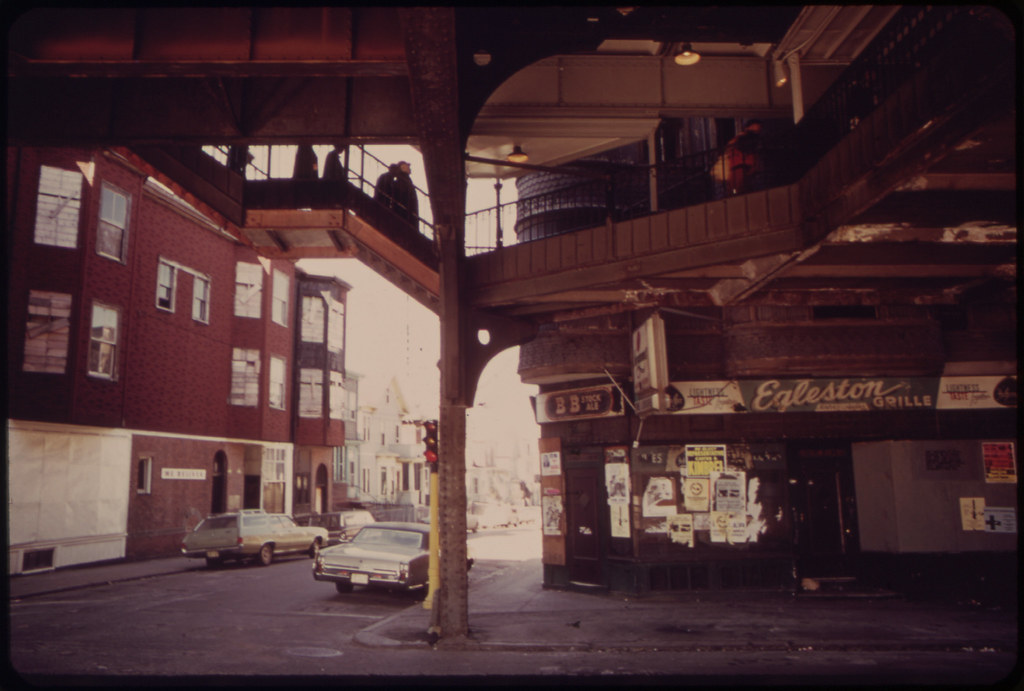
Washington Street under the El, looking toward Egleston Square: photo by Ernst Halberstadt, February 1973
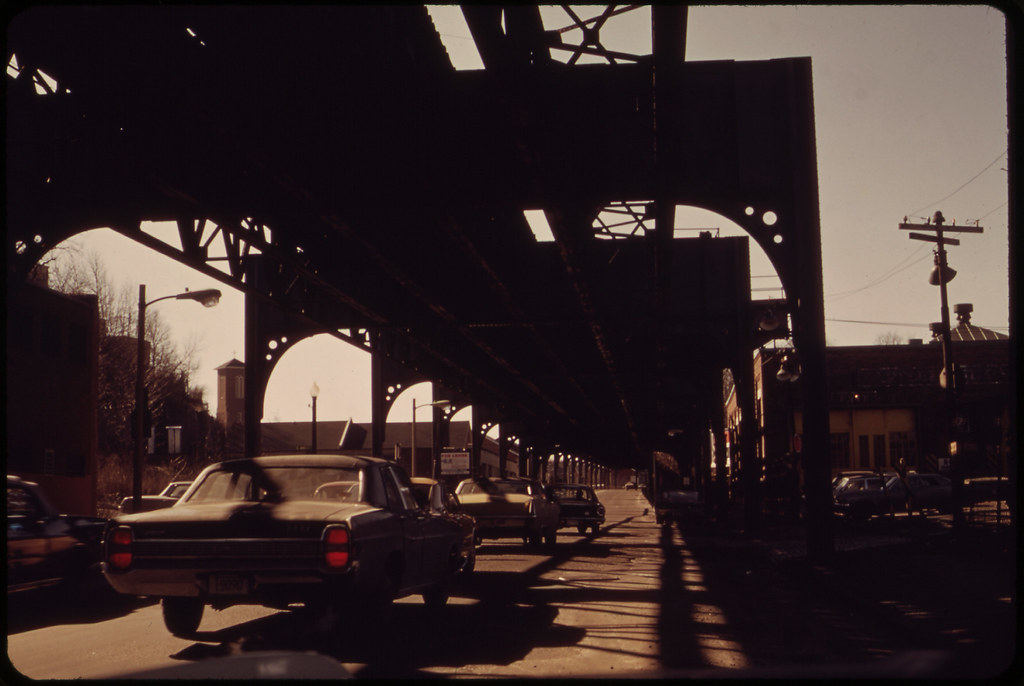
Elevated railroad structure and blighted area below Washington Street, looking south from the corner of Bartlett, Boston, Massachusetts: photo by Ernst Halberstadt, February 1973
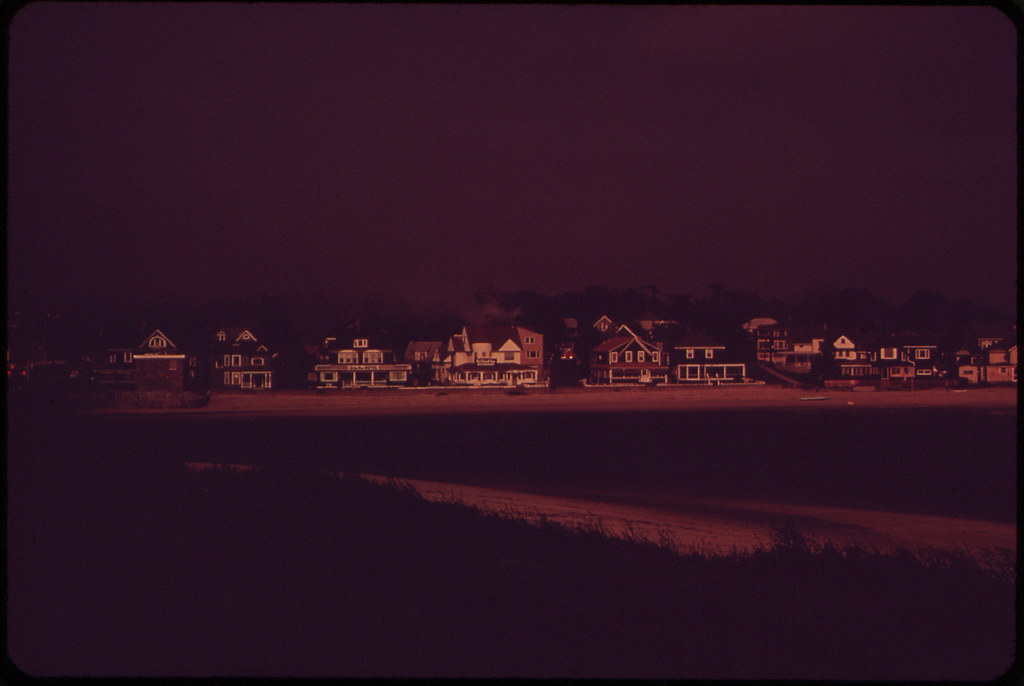
House on fire at Independence Point on Buzzard Bay at Onset: photo by Ernst Halberstadt, May 1973
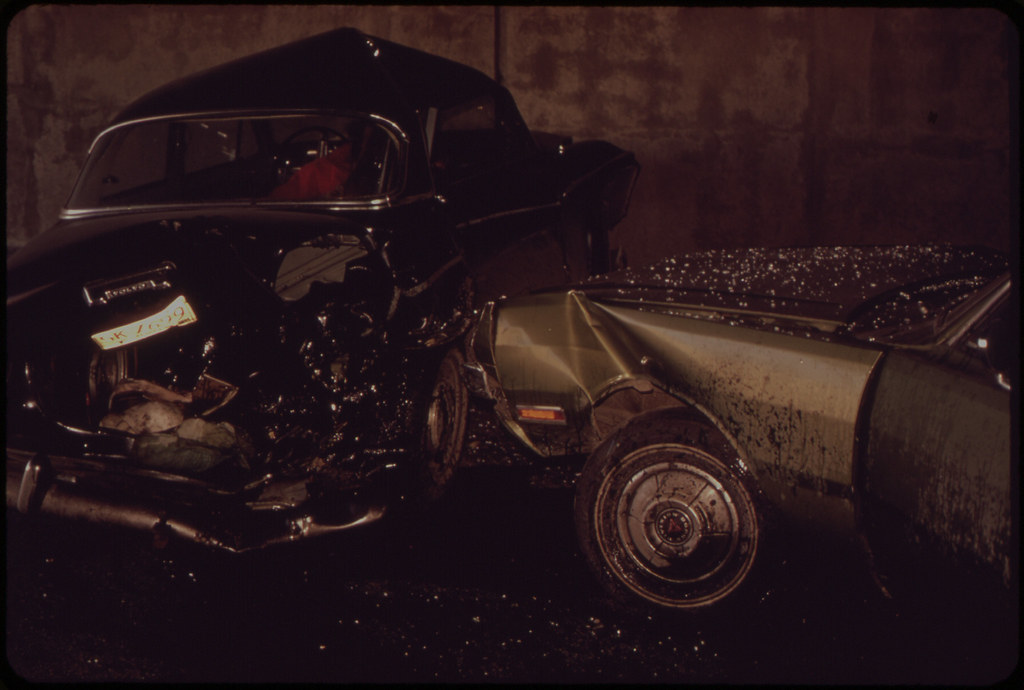
Auto accident on Storrow Drive, Boston, 9 a.m.: photo by Ernst Halberstadt, February 1973
Photos by Ernst Halberstadt (1910-1987), 1973, for the Environmental Protection Agency's Documerica Project (U.S. National Archives)



11 comments:
Ernst Halberstadt, for those who don't know, was a German-born immigrant to the US -- arriving from Frankfurt with his parents at the age of one, raised in the Boston area, in what are politely called "modest circumstances", trained in art in that city, and going on to work widely as a muralist in the 1930s, for the Federal Art Project and the WPA, as a collaborator with Diego Rivera.
One of his major 1930s murals, done at an Army training center at Fort Monroe, later mysteriously vanished, leaving reasonable suspicion in the mind of his grand-daughter, among others, that it had been painted over.
Who knows where the political art goes?
Halberstadt retired to the Massachusetts town of Onset -- where, in the penultimate photo here, we see a house burning in the night.
Wonderful rhythm to this morning’s gift of Creely. And that Mobius strip of a final verse holds one's attention to the poem.
Yes, the intense internal torquing in that last quatrain is the poet at his best -- capturing, as is his way, an uncanny interiority that is oft felt, tho seldom express'd.
Tom,
A beautiful pairing here, glass shattered by "a stray lump of coal" together with Creeley's
". . .wonder that it was
the inside he as me saw
in the dark there."
3.25
light coming into sky above black plane
of ridge, bird landing on redwood fence
in foreground, sound of wave in channel
“dwarf stars” whose density
exceeds water, second
consider a system, in place
of the field, instead
silver line of sun reflected in channel,
white cloud in pale blue sky on horizon
Thanks for catching that word/picture link, Steve; that was a chord in the composition; of which, now, for me, the shattered densities of your "dwarf stars" also do become a part.
Creeley's poem shows us the ramshackle haunted houses we all are.
That's a lovely way of reading it. The "child's" (near) rhyme, stairs/air, leaves us hanging, challenged to keep our balance, as on a precarious staircase.
Bob was our neighbor for a time, and somewhere we have (if indeed we still do have it) a photo of him, walking up a steep, winding road on which he then lived -- Terrace, it was called, a terrace above the ocean -- with hands upraised, and extended out at both sides, in comically exaggerated mimicry of someone trying to stay upright on the deck of a ship rolling on troubled seas.
I see him on that staircase, in that haunted house of himself, keeping steady when others might have fallen.
A Capital Partnership
(Lord and Jealous Wool Mill, City Mills, Massachusetts)
Bankrupt—
Like the walls of Jericho
No longer Lord,
No longer Jealous,
The no longer envious
Lambs of God milling
About where or when
Wooly-minded enterprise came
Blowing its horn before tumbling
Down upon them.
Let us recall that this week we celebrate the 150th anniversary of the delivery of the canonical pastoral advice on this subject by the Reverend C. H. Spurgeon from the Metropolitan Tabernacle Pulpit, Newington, beginning with the text from Exodus 34:14,"For the Lord, whose name is jealous, is a jealous God."
Reverently, let us remember that THE LORD IS EXCEEDINGLY JEALOUS OF HIS DEITY.
God almighty, Reverend, talk about a monopoly!
On the subject of RC and religion, New England nonconformist strain:
RC: My mother's people are the Everetts, which has some correlation with the Massachusetts Bay Colony Everetts... [she] came from a 'good family', as they say, though it was a poor branch of it... The family was religious, but didn't think they needed to make it particularly evident. Well, when my mother was very old. she and my aunt Beatrice did go to a wild drive-in church in Nokomis, Florida; by then they were too decrepit to get out of the car. Again, it's that particular Puritan habit that, on the one hand, specifically does, quote, 'believe in God' -- but on the other, loathes making a particular show of that, and really doesn't accept it, doesn't really want the complications of a communally experienced God.
TC: Did you attend church services as a child?
RC: Yes, sure. It was a small Baptist church, right in the center of this small town of West Acton [,Massachusetts]. The Baptist minister was a kind of low-key, liberal, not remarkably intelligent but comforting presence. The service was almost like a town meeting; it didn't feel particularly religious. It felt like the sensible and responsible public qualification of social obligation. There was no intensity or fervor... There was a Sunday school, but it felt more like a boy scout meeting.
TC: A civic rather than a religious function?
RC: Yes, much more religious than social There was bit of theological demonstration, but for the most part it was more social than religious... I *did* however used to think, you know, in the woods walking, and as a kid playing in the woods, that there was a kind of *immanence* there -- that woods, and places of that order, had a sense, a kind of presence, that you could feel: that there was something peculiarly, *physically* present, a feeling of place almost conscious... Like God. It evoked that.
from TC: Robert Creeley and the American Common Place, 1993
Post a Comment